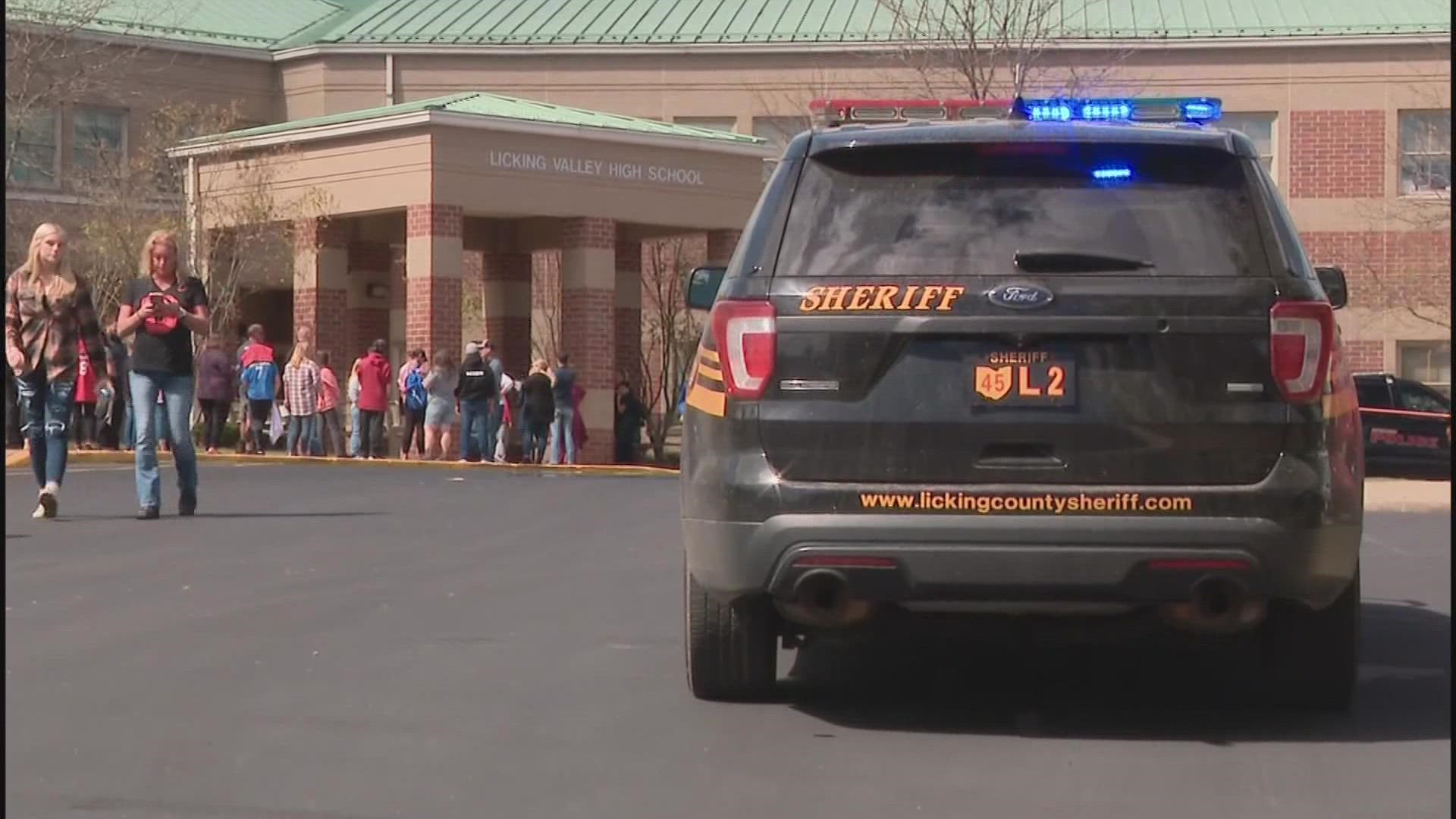COLUMBUS, Ohio — Swatting calls could lead to a harsher punishment in the state of Ohio.
House Bill 462, introduced in October 2021, would make swatting calls a second-degree felony. Swatting is when someone makes a prank call to emergency services in an attempt to bring about the dispatch of a large number of armed police officers to a particular address.
On Tuesday, the committee held its third hearing on the bill. State Representative Kevin Miller (R-Newark) is one of the bill's sponsors.
"In my opinion, to address that behavior, it needs to be something more than a misdemeanor, it should be a felony level offense to appropriately deter that type of behavior," Miller said.
Miller previously served as an Ohio State Highway Patrolman. He remembers responding to a swatting call in 2014 that put Denison University on lockdown.
"I remember loading rifles into my SUV to ensure that my units had those when they were stationed at the various points guarding the school. And it's very, extremely stressful," he said.
Under House Bill 462, those convicted could face prison time, fines, and restitution. The money would be used to reimburse law enforcement for abusing emergency services.
Opponents of the bill say swatting is already illegal under several Ohio statutes, and that the law wouldn't have a wide-ranging benefit.
"It overcomplicates our criminal justice system, it leads to errors at trial, and it certainly does not, you know, does not create the air does not treat the defendant fairly," said Niki Clum, policy manager for the Office of the Ohio Public Defender. "It's already covered under the inducing panic and making false alarm statutes. So, when you slightly change the word of a statute and continue to criminalize behavior that is already criminal, it just adds to confusion at the trial court level."
Miller, however, said he wants to send a message about not pulling resources from people in real danger.
"Swatting is not acceptable in any state but especially here in Ohio, and if you do this, you will face serious punishment and/or fines and restitution," Miller said.
After more hearings, the committee would need to vote to move the bill to the House floor.

